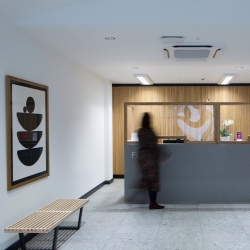To provide the best experiences, we use technologies like cookies to store and/or access device information. Consenting to these technologies will allow us to process data such as browsing behaviour or unique IDs on this site. Not consenting or withdrawing consent, may adversely affect certain features and functions.
The technical storage or access is strictly necessary for the legitimate purpose of enabling the use of a specific service explicitly requested by the subscriber or user, or for the sole purpose of carrying out the transmission of a communication over an electronic communications network.
The technical storage or access is necessary for the legitimate purpose of storing preferences that are not requested by the subscriber or user.
The technical storage or access that is used exclusively for statistical purposes.
The technical storage or access that is used exclusively for anonymous statistical purposes. Without a subpoena, voluntary compliance on the part of your Internet Service Provider, or additional records from a third party, information stored or retrieved for this purpose alone cannot usually be used to identify you.
The technical storage or access is required to create user profiles to send advertising, or to track the user on a website or across several websites for similar marketing purposes.
 The Office of Tax Simplification (OTS), an independent advisor to the UK government, has launched a review looking for evidence of trends in relation to hybrid working. The review will also consider whether the tax and social security rules are flexible enough to cope, and what businesses, advisors and other bodies are experiencing as new ways of working become business as usual. The review will also consider the implications of any developments on cross border workers.
The Office of Tax Simplification (OTS), an independent advisor to the UK government, has launched a review looking for evidence of trends in relation to hybrid working. The review will also consider whether the tax and social security rules are flexible enough to cope, and what businesses, advisors and other bodies are experiencing as new ways of working become business as usual. The review will also consider the implications of any developments on cross border workers.



































August 25, 2022
How Microsoft’s social listening research highlighted changing attitudes to work
by Camila Angio • Comment, Technology, Wellbeing